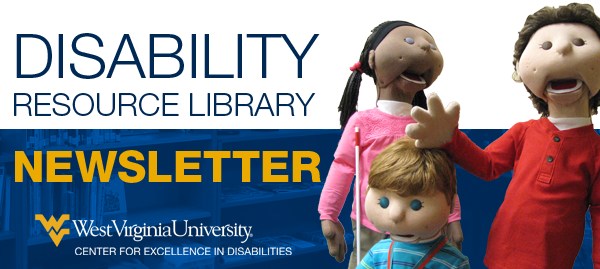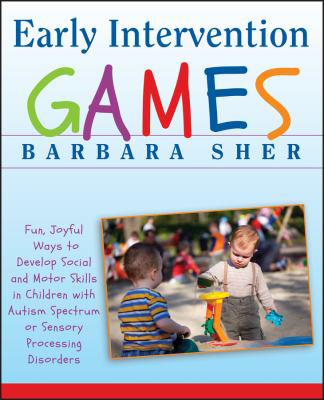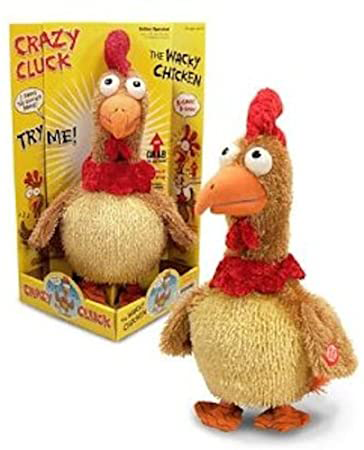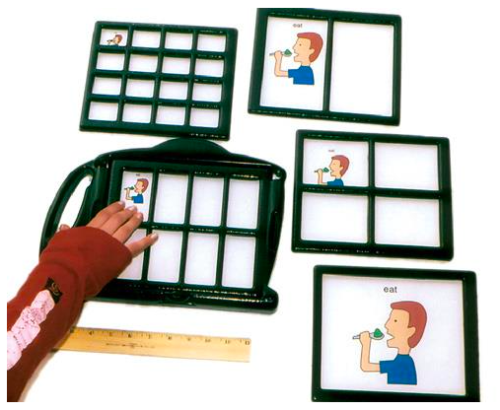April 2024

Early Intervention
Early intervention is best described as the services and other supports that families and caregivers can access when they have a child with a disability, developmental delays or suspected developmental delays. These can include physical therapy, speech therapy and other various supports and services your family may need as your child grows. Early intervention services are available in every state in the U.S. for children aged birth to three years of age. These services are referred to as Part C services and they are included in the Individuals with Disabilities Education Act (IDEA). If at any time you feel your child may be delayed in how they play, move, learn or speak, they can be referred by parents, caregivers or pediatricians to West Virginias early intervention services (West Virginia Birth to Three). As a parent, you can make the referral yourself – a doctor’s referral is not necessary.
After the referral is made, your child will be scheduled for an evaluation to determine where they are on their developmental milestones. You may be asked to fill out a parent questionnaire. If your child is found eligible, these services are provided free of charge. As parents we want our children to reach their greatest potential and early intervention can help them achieve that goal. Your child can learn new skills, and these services can even help you as a parent learn ways to work with your child to overcome challenges. Together you can find the very best outcome for your child’s future.
Featured Resources
Browse more featured resources available to borrow from the DRL:
https://vll.cedwvu.org/.The Early Intervention Guidebook for Families and Professionals: Partnering for Success
By: Bonnie Keilty, 2010
This practical guide is essential reading for families of infants and toddlers with, or at risk for, developmental delays or disabilities and the early intervention professionals who partner with those families. The Early Intervention Guidebook shows what early intervention looks like when it is based on current research, policies and best practices. It focuses on how families and professionals can collaborate effectively so that young children learn, grow and thrive. Chapters address critical issues in early intervention, including child learning and development, family functioning and priorities, early intervention as a support, and thinking about “what’s next" after early intervention. Specific components of early intervention such as evaluation and assessment, program and intervention implementation, service-coordination and transition are discussed.
Early Intervention GAMES

By: Barbara Sher, 2009
In this book for all children with sensory processing disorders, the author clearly explains what sensory issues are in language that is easy to understand and provides exercises that professionals and parents can organize with minimal preparation and expense. This is a wonderful resource for families looking for ways to have fun with our sensory kids while simultaneously building all-important social, motor, sensory and self-advocacy skills that will last a lifetime.
Featured Technology
Browse featured technology to borrow from the DRL: https://vll.cedwvu.org/.
Tumble Forms 2 Deluxe Floor Sitter

The Tumble Forms 2 Floor Sitter is a multipurpose chair that combines the Feeder Seat Positioner and the Floor Sitter Wedge. The Floor Wedge is used for reclined or upright positioning and is securely fastened together by a Velcro hook and loop system, making for easy adjustability. The Floor Sitter can be used in the home, clinic or school settings as it allows an individual to be positioned on the floor at a desired angle based on specific needs and tasks. Developed originally for feeding, the Floor Sitter accommodates infants through adolescents, the foam allows for easy wash and sanitation, and can provide basic positioning without tedious adjustment.
Crazy Cluck Dancing Chicken (Adapted Toy)

Play can be a great motivator to get a child to participate in challenging motor activities. Use an adaptive switch with Crazy Cluck to teach eye-hand coordination and visual targeting. Crazy Cluck's dancing, squawking and thrashing of his feet just might be the thing that motivates you to move and try repeatedly! Stands 13-inches tall.
7-Level Communication Builder
This communication builder is equipped with five changeable frames that allow you to refine communication choices as the individual develops new skills. Seven levels of messages can be recorded for each frame setting. Using state of the art digital recording technology, this unit can be programmed in a variety of manners: 1, 2, 4, 8, and 16 message capacities.

Free early education apps to try at home
ABC Alphabet Phonics – Preschool Game for Kids
This game helps kids learn the alphabet by sight, sound and touch. Even young children who are a few months old can use this app to help them learn the alphabet. You can record sounds in your own voice, so it suits both English speakers and those from migrant and Indigenous backgrounds who want to use their native tongue. You can also take photos of your child’s favorite items to make it more fun and personal, then use those photos to help your child learn the alphabet.
Play School Art Maker for Early Childhood Education
This app encourages imagination and creativity through open play. Kids can create their own pictures, animated movies and slideshows narrated with their voice. Parents can join the creative process for family bonding. For kids ages 2-6.
Khan Academy Kids: Learning!
This app has an enormous range of games, books, activities and songs for toddlers and young children of different ages and levels. Interactive activities and lessons can be customized to improve reading, language, writing, math, problem-solving, social and motor skills. Activities and games like drawing, storytelling and coloring encourage creativity and self-expression.
Featured West Virginia Resources
WV Birth to Three
WV Birth to Three is a statewide system of services and supports for children under age three who have a delay in their development or may be at risk of having a delay and their family. The Department of Health and Human Resources, through the Bureau for Public Health and the Office of Maternal, Child and Family Health, WV Birth to Three, as the lead agency for Part C of the Individuals with Disabilities Education Act (IDEA), assures that family-centered, community-based services are available to all eligible children and families at no cost.
Help Me Grow
This is a free referral service that connects families to critical developmental resources for their children from birth through five years old. The goal is to successfully identify at-risk children and link them to the help they need.
TEAM for West Virginia Children
A non-profit organization that works with communities and families to make the needs of children a priority. TEAM programs promote child well-being by providing parents and communities with the tools they need to make a positive difference in children’s lives.
WV Family Resource Network
The West Virginia Family Resource Networks are organizations that respond to the needs and opportunities of the community. Partnering with community members and public and private organizations, the WVFRN members develop innovative projects and provide needed resources for their local areas. Their initiatives demonstrate the network’s commitment to community development in the region.
Child’s Champion:
Tori Gilbert, SLPD, CCC-SLP
Tori Gilbert is an assistant professor, a speech-language pathologist and the Education Coordinator at the WVU Center for Excellence in Disabilities (CED). Tori is a proud mom of three beautiful children, and she treats every child she works with as if they were her own. Clinically, Tori has focused on increasing the accessibility for individuals who are non-speaking or have a desire to use augmentative and alternative communication (AAC). She continues to learn and apply methods of comprehensive AAC evaluations and family-centered trainings to support children she works with. Currently, Tori is launching a new clinic at the CED, the Communication Access and Assistive Technology (CAAT) Clinic, to connect families to next steps and resources to improve their access to communication.
Growing up in West Virginia has always influenced Tori’s desire to serve the community that raised her. More specifically, she believes communication is a basic human right and every child deserves access to tools that can help them be understood by others. For Tori, seeing the joy and excitement in a child’s eyes after being understood using AAC is so fulfilling. Having the ability to support children on their communication journey gives her purpose.
Tori is passionate about educating the next generation of disability professionals with an emphasis on emotional intelligence. Tori hopes that her greatest impact has been increasing awareness and inclusion of AAC users through education and training. Education is a powerful tool to change the landscape of inclusion for individuals with disabilities. Tori’s professional goals are to improve access to communication across the state of West Virginia through maintaining the CAAT Clinic, to develop a self-paced AAC introduction course for community members (students, professionals, families, etc.), and to develop and maintain a web-based resource library for AAC. Her hope is that more education will lead to a positive impact on the lives of AAC users at home, school, and in the community.
References:
The Importance of Early Intervention for infants and Toddlers with Disabilities & Their Families-(https://ectacenter.org/~pdfs/pubs/importanceofearlyintervention.pdf): Accessed February 6, 2024
Why Act Early if You’re Concerned about Development-(https://www.cdc.gov) Accessed February 6,2024
Center for Disease Control and Prevention/Developmental Milestones: (https://www.cdc.gov/ncbddd/actearly/milestones/index.html); Update February 2022 Accessed February 6,2024
Seven Free Early Childhood Apps: Reading Out of Poverty: (https://roop.org.au/six-free-early-childhood-education-apps-to-try-at-home/) Accessed February 6, 2024
